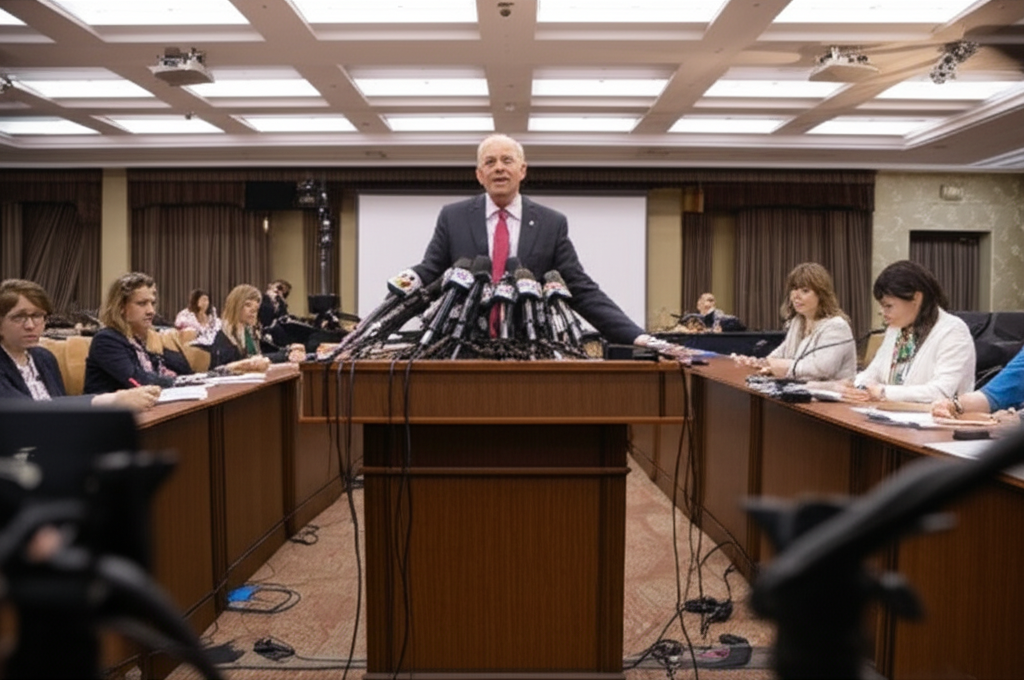Questions regarding President Donald Trump’s mental fitness for office have intensified recently, fueled by observations from his latest press conferences and speeches, his admission of a recent MRI exam, and ongoing activity on social media platforms. At 79 years old, Trump’s public statements and online behavior have prompted renewed scrutiny from political commentators, medical professionals, and the public alike.

Scrutiny Intensifies Over Public Appearances and Cognitive Function
In recent months, President Trump’s public appearances have drawn attention due to what some observers describe as erratic responses, difficulty recalling facts, and rambling speech patterns. These instances have led to concerns about his cognitive health, particularly given his age.
Press Conferences and Speeches Under the Microscope
During recent press conferences and rallies, Trump has reportedly exhibited a tendency to “go off on tangents” and struggle with focus, often leaping between unrelated topics. Commentators have pointed to instances where his narratives become convoluted, and he has made claims that are mathematically impossible or factually incorrect. For example, a recent “bizarre, angry, rambling rant” on Air Force One about a cognitive test he supposedly aced, and his comparison of his cognitive abilities to “nonwhite women,” further fueled discussions about his mental state. Some analysts suggest that while Trump describes his unique speaking style as “the weave,” where seemingly disparate thoughts ultimately connect, critics interpret it as signs of cognitive decline.

Unveiling of Recent MRI Exam Raises Further Questions
A significant new development in the discussion around Trump’s health is his recent admission of undergoing an MRI scan at Walter Reed National Military Medical Center. This revelation has sparked considerable speculation, as MRI scans are not typically part of a routine physical examination.
The “Secret” MRI and Medical Community Concerns
Trump stated that the MRI results were “perfect” and among the “best reports for the age” doctors had ever seen. However, the official summary of his October 10 visit to Walter Reed only mentioned “advanced imaging” without specifying an MRI or its findings, leading to questions about transparency. Dr. Jonathan Reiner, a prominent cardiologist and former physician to Dick Cheney, noted that MRIs are generally ordered due to specific symptoms, such as neurological issues, back pain, or heart problems, and are “never part of a routine evaluation”. This discrepancy between Trump’s statement and the White House’s initial report, along with the standard medical practice regarding MRIs, has led some to call for further details on why the scan was conducted.

Social Media Activity Fuels Mental Health Debate
Donald Trump’s prolific use of social media, particularly his platform Truth Social, continues to be a source of scrutiny regarding his mental health. His posts are frequently analyzed for indications of his state of mind.
Erratic Posts and “Projection Reflex”
Critics point to an increase in what they describe as “erratic responses” and posts that demonstrate a “manic dark energy”. Some mental health professionals have long discussed Trump’s social media patterns, with some, in past instances, suggesting symptoms of “malignant narcissism” or being on the “bipolar spectrum,” though such diagnoses are made without direct examination. More recent observations highlight posts that include false information, conspiracy theories, and commands for his attorney general to prosecute enemies. The concept of “projection” has been used by some mental health experts to interpret Trump’s social media outbursts, where he attributes negative traits or accusations to others that could, in their view, be applied to himself.

Broader Concerns and Historical Context
The current discussions about Trump’s mental health are not unprecedented. Concerns about his physical and mental fitness have been debated since his 2016 presidential campaign. He was the oldest person to assume the presidency at 70, and at 79, he is the oldest to be inaugurated as president in American history.
Goldwater Rule and Ethical Considerations
The “Goldwater Rule,” which prohibits mental health professionals from publicly diagnosing public figures they have not personally examined, has been a recurring point of discussion in relation to assessments of Trump’s mental state. Despite this, numerous health professionals have signed open letters expressing concerns about his fitness for office, citing observable public behavior.
Comparison to Other Candidates
Commentators have also drawn parallels between the scrutiny Trump now faces and the questions that previously surrounded President Joe Biden’s age and cognitive abilities. While Biden, at 81, also faced a deluge of questions about his mental fitness, some argue there is a contrast in how the media treats cognitive missteps between the two. Public opinion polling from July 2024 indicated an increase in the percentage of Americans concerned about Trump’s fitness for a second term. As the 2024 election approaches, the mental health of presidential candidates remains a significant, albeit sensitive, topic of public discourse.







